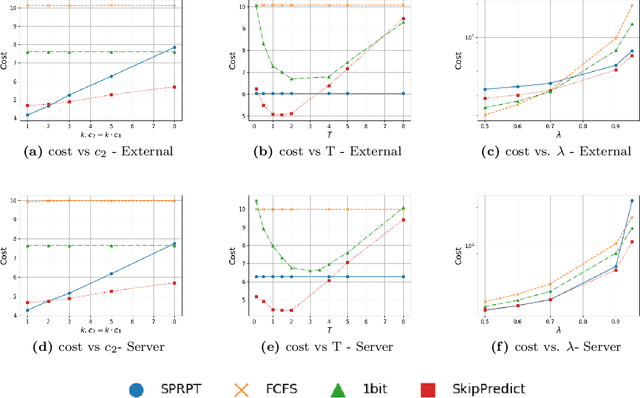SkipPredict: When to Invest in Predictions for Scheduling
Paper and Code
Feb 05, 2024



In light of recent work on scheduling with predicted job sizes, we consider the effect of the cost of predictions in queueing systems, removing the assumption in prior research that predictions are external to the system's resources and/or cost-free. In particular, we introduce a novel approach to utilizing predictions, SkipPredict, designed to address their inherent cost. Rather than uniformly applying predictions to all jobs, we propose a tailored approach that categorizes jobs based on their prediction requirements. To achieve this, we employ one-bit "cheap predictions" to classify jobs as either short or long. SkipPredict prioritizes predicted short jobs over long jobs, and for the latter, SkipPredict applies a second round of more detailed "expensive predictions" to approximate Shortest Remaining Processing Time for these jobs. Our analysis takes into account the cost of prediction. We examine the effect of this cost for two distinct models. In the external cost model, predictions are generated by some external method without impacting job service times but incur a cost. In the server time cost model, predictions themselves require server processing time, and are scheduled on the same server as the jobs.
 Add to Chrome
Add to Chrome Add to Firefox
Add to Firefox Add to Edge
Add to Edge